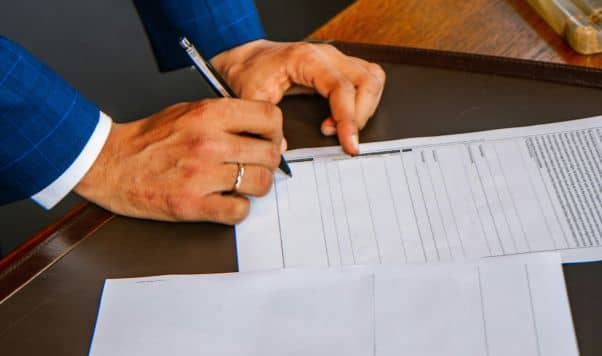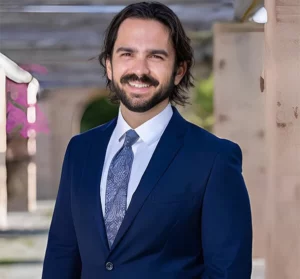How to Get a Death Certificate After a Loved One Dies

The most recent data from the National Center for Health Statistics (NCHS) indicates more than 3,400,000 deaths in the United States in 2021. When someone dies, the local government issues a formal document known as a death certificate.
The death certificate provides the date, location, and cause of death. Florida issues two different types of death certificates, death certificates that includes the cause of death, also known as long form death certificates, and death certificates that do not include the cause of death, also known as short form death certificates. For Florida probate purposes, the Probate Court will require a short form death certificate.
When a loved one passes away, it’s important to get a death certificate. This document is necessary to handle the financial and legal affairs of the deceased person.
In fact, most end-of-life matters require a death certificate. Offering proof that an individual has died allows surviving loved ones to decide. Still, many people do not know they need proof of death or know how to apply for a death certificate.
Following the death of a loved one, you’ll need a copy of the death certificate to do tasks such as making burial or cremation arrangements, transferring bank accounts and assets, and filing insurance claims.
Oftentimes, if prior funeral arrangements were made, the funeral home company will obtain the death certificates. However, in the event the company does not, or there are not enough you will need to obtain a copy yourself.
Where to Get a Death Certificate
In most cases, you can get a death certificate through your county’s vital records office. You may also be able to get a certificate of death through the state Department of Health. The State of Florida Department of Health records offices maintain and issue official documents related to significant life events such as births, deaths, marriages, and divorces.
Typically, the county where the person resided issues the death certificate. However, when people die away from home, the county where the death occurred creates the death certificate.
How Do I Find a Death Certificate?
To find a death certificate, you’ll first need to identify the jurisdiction where the death occurred. Next, contact the appropriate local vital records office.
Once you have found the office, you’ll need to request the certificate, either in person or online. To make the request, you’ll need the full name, date of death, and last county of residence of the deceased person. You’ll also need a form of identification to prove that you are a close family member, unless enough time has passed to make the death certificate part of the public record.
The office will require a fee, which generally ranges from $5 to $30 per copy. AARP recommends getting five to 10 copies.
Are Death Certificates Public Record?
Certain close family members can access the death certificate soon after the death. Others must wait until it becomes a public record.
In most states, death certificates become public records after a certain period, such as 25 years. Soon after an individual passes away, only close family can obtain the certificate. These individuals include spouses, siblings, and children. Others who may be able to receive a copy of the death certificate include the personal representative or executor of the estate and beneficiaries.
Inquire with your state’s vital records office to determine when death records become public in your state.
How Long Does It Take to Get a Death Certificate?
Obtaining an official death certificate can take between two and four weeks after making a request with the vital records office.
In most cases, the process of creating a death certificate begins within 72 hours of the death, when the coroner or medical examiner confers with a spouse or relative to verify information such as the deceased’s Social Security number, birth date, and professional information. The coroner or medical examiner then submits the document to the vital records office.
Some factors can prolong the process. For instance, states with paper filing services tend to take longer. Legal concerns can also cause complications. In cases with ongoing investigations, state governments typically require the certificate to list the cause of death. If the death is still under investigation, officials may need more time to determine the cause.
Contact an Estate Planning Attorney
Losing someone you love is painful enough without tackling a bunch of unfamiliar legal processes like probate alone. Trying to handle everything yourself amidst grief leaves you drained and overwhelmed. Alexander Gil, PLLC, understands this difficult situation intimately. Our primary focus is helping grieving families deal with probate issues in Florida. We also help in all matters related to wills, trusts, and estate planning.
Our team stands ready to answer your probate questions, explain what lies ahead, and handle filings competently so you can focus on healing.
Our office is located in Miami Beach. We serve clients all over the State of Florida. All probate matters can be handled virtually. If you need help, contact probate attorney Alexander Gil for personalized guidance tailored to your unique needs.
Latest Reviews
C. U.
A. G.
M. R.
Y. H.
A. K.
